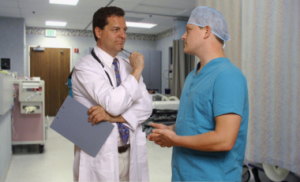by
Brendon Nafziger, DOTmed News Associate Editor | May 19, 2011
Looking for a hospital for cancer surgery?
Popular ranking systems like U.S. News & World Reports' "best hospitals" might unfairly leave out safe facilities, doctors say.
In a study released this week in Archives of Surgery, doctors found after taking patient volume into account, high-ranked hospitals in U.S. News & World Reports and HealthGrades don't tend to have better survival rates for three cancer surgeries.



Ad Statistics
Times Displayed: 78539
Times Visited: 2794 Ampronix, a Top Master Distributor for Sony Medical, provides Sales, Service & Exchanges for Sony Surgical Displays, Printers, & More. Rely on Us for Expert Support Tailored to Your Needs. Email info@ampronix.com or Call 949-273-8000 for Premier Pricing.
The authors, led by Dr. Nicholas H. Osborne, a researcher with University of Michigan in Ann Arbor, wrote that rankings like HealthGrades' "Best Hospitals" or U.S. News & World Report's "America's Best Hospitals" could be helpful in finding hospitals to have safe cancer surgeries, but that they "fail to identify other high-volume hospitals of equal quality."
The study found that risk-adjusted mortality was lower for three procedures -- for pancreas, colon and esophagus cancer surgeries -- among U.S. News & World Report's best hospitals, and was lower for only one procedure, colon surgeries, at HealthGrades' best hospitals.
However, once the number of patients treated was taken into account, these differences vanished, except for colectomies at U.S. News & World Report best hospitals, which still had lower mortality rates.
In an accompanying editorial, two Washington University School of Medicine doctors said it makes sense U.S. News & World Report best hospitals would initially seem to have lower mortality rates because the "best hospital" tag is really a "surrogate marker for hospital volume."
"When the statistical analysis is adjusted for hospital volume, the improved mortality rates are no longer significant in 5 of 6 of the groups examined," wrote Dr. David C. Linehan and Dr. David Jaques. "This seems intuitive, i.e., that specialized centers with high volume should have better results, and patients seem to understand. Often the well-informed patient asks the pertinent question, 'How many of these have you done?,' and not, 'What does HealthGrades or U.S. News think of you or your hospital?'"

